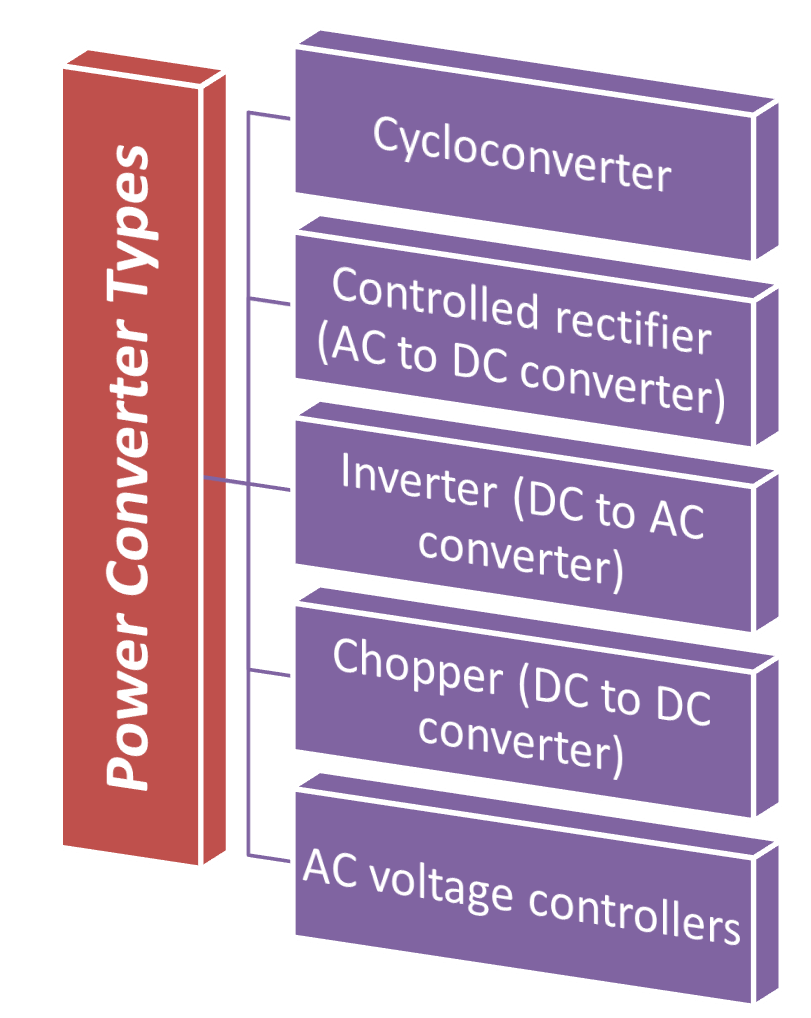In this topic, you study Power Converters – Theory, Types, Advantages & Disadvantages.
The Power Converter is an electrical circuit, frequently used to control electric machines and conversion applications.
Types of Power Converters
The following are various types of Power converters are

- Cycloconverter
- Controlled rectifier (AC to DC converter)
- Inverter (DC to AC converter)
- Chopper (DC to DC converter)
- AC voltage controllers
Advantages of Power Converters
- Fast response of the power semiconductor converters
- High efficiency due to less losses in power semiconductor converters
- Long life and reliability due to the absence of moving parts
- Less and easy maintenance
- Less noise
- Control flexibility
- Small size and low weight, require less floor area
Disadvantages of Power Converters
- Power converters have a tendency to introduce current and voltage harmonics into supply systems and controlled systems
- Harmonics in the supply system causes interference with communication systems and distortion of supply voltage
- Thyristor controllers have low overload capacity
- Regeneration of power is difficult
- Some converters such as controlled rectifier, cycloconverter (AC to AC converters) and the AC voltage controller suffer from a poor power factor, particularly at low output voltages.